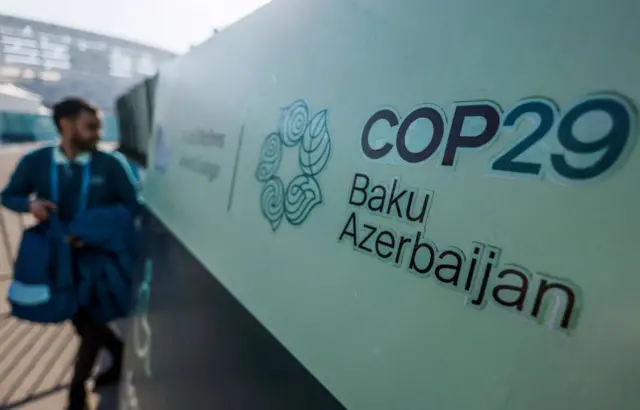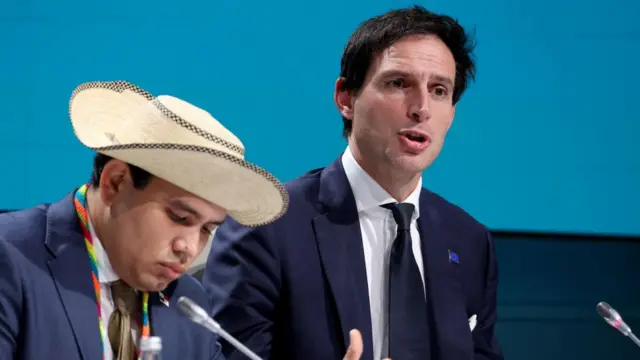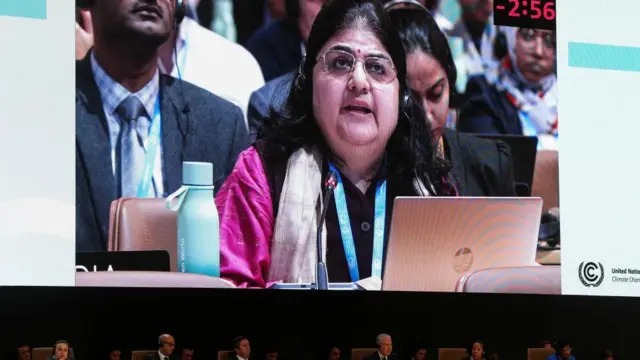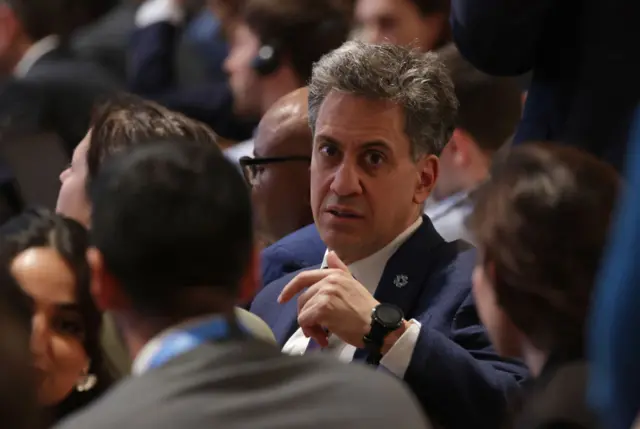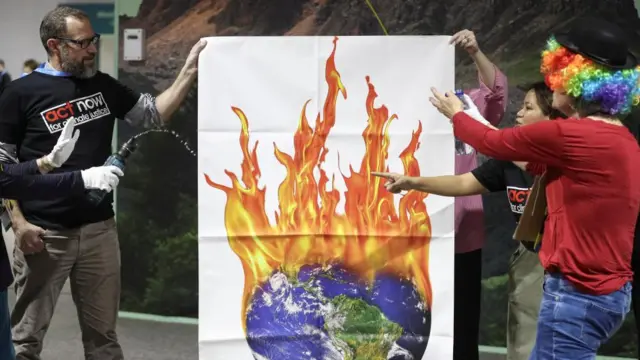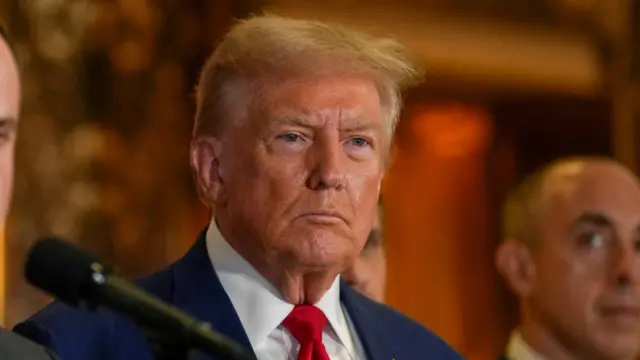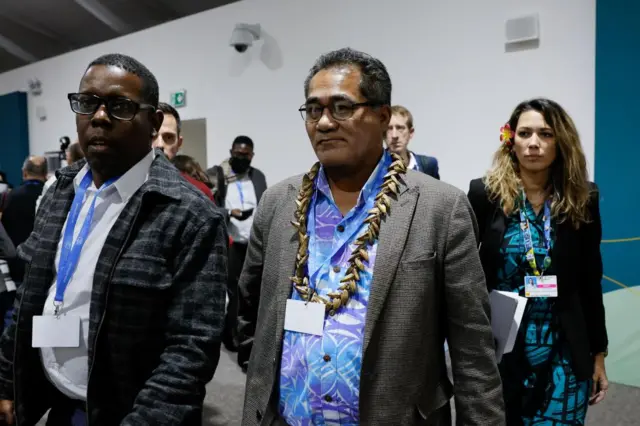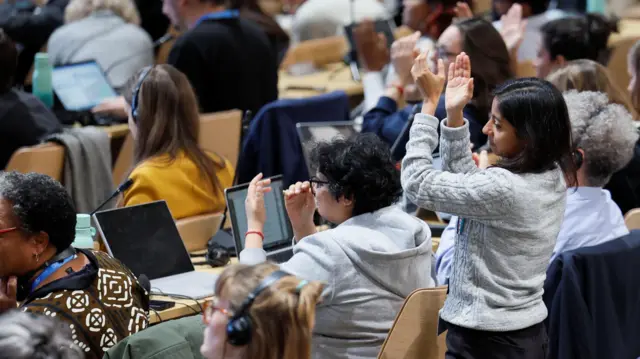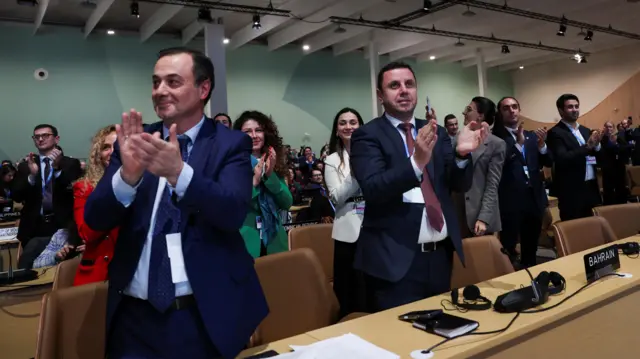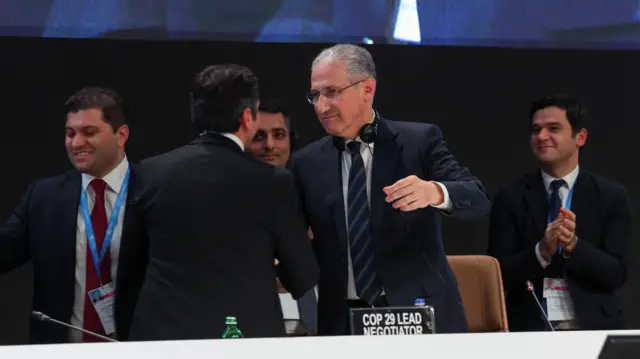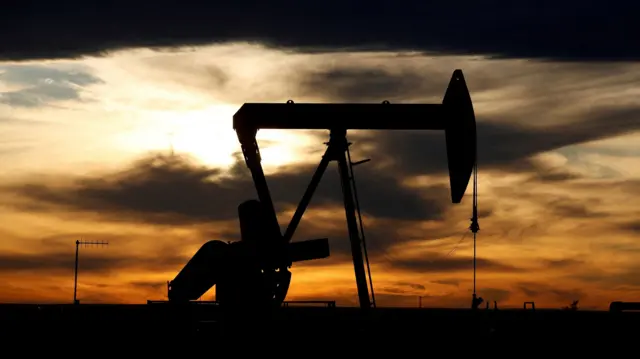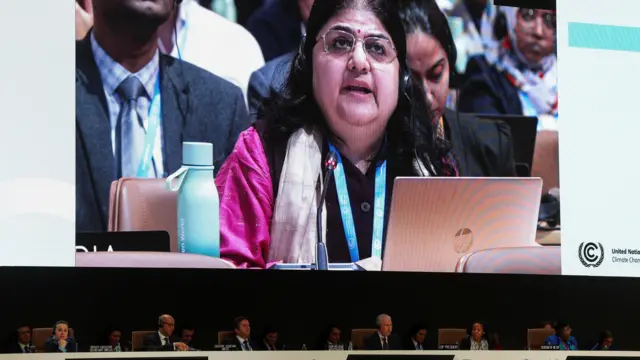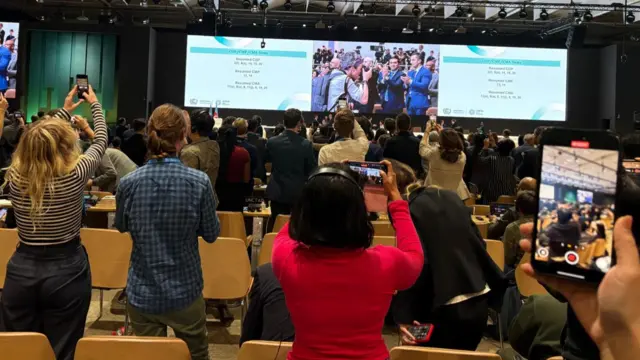Deal 'too little, too late', African negotiators saypublished at 09:19 GMT 24 November 2024
Some developing nations have been criticising the $300bn climate financing offer, saying it fails to meet the scale of the challenge they face in the years ahead.
Shortly after the agreement was passed in the early hours of Azerbaijan, the African Group of Negotiators, an influential developing nations bloc, described the pledge as "too little, too late" for the continent.
"We are extremely disappointed at the lack of progress on the issues critical to Africa," Ali Mohamed, the group's Kenyan chair, told the COP29 conference.
"Africa has and will continue to sound the alarm on the inadequacy of climate finance."
Addressing the negotiators, Simon Stiell, the head of the United Nations Framework Convention on Climate Change, conceded that the agreement was far from perfect.
"No country got everything they wanted. And we leave Baku with a mountain of work to do," he said.
